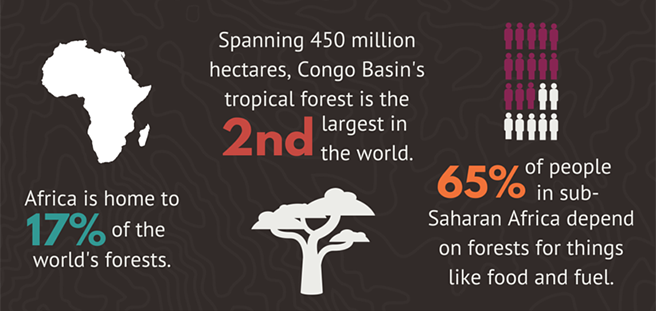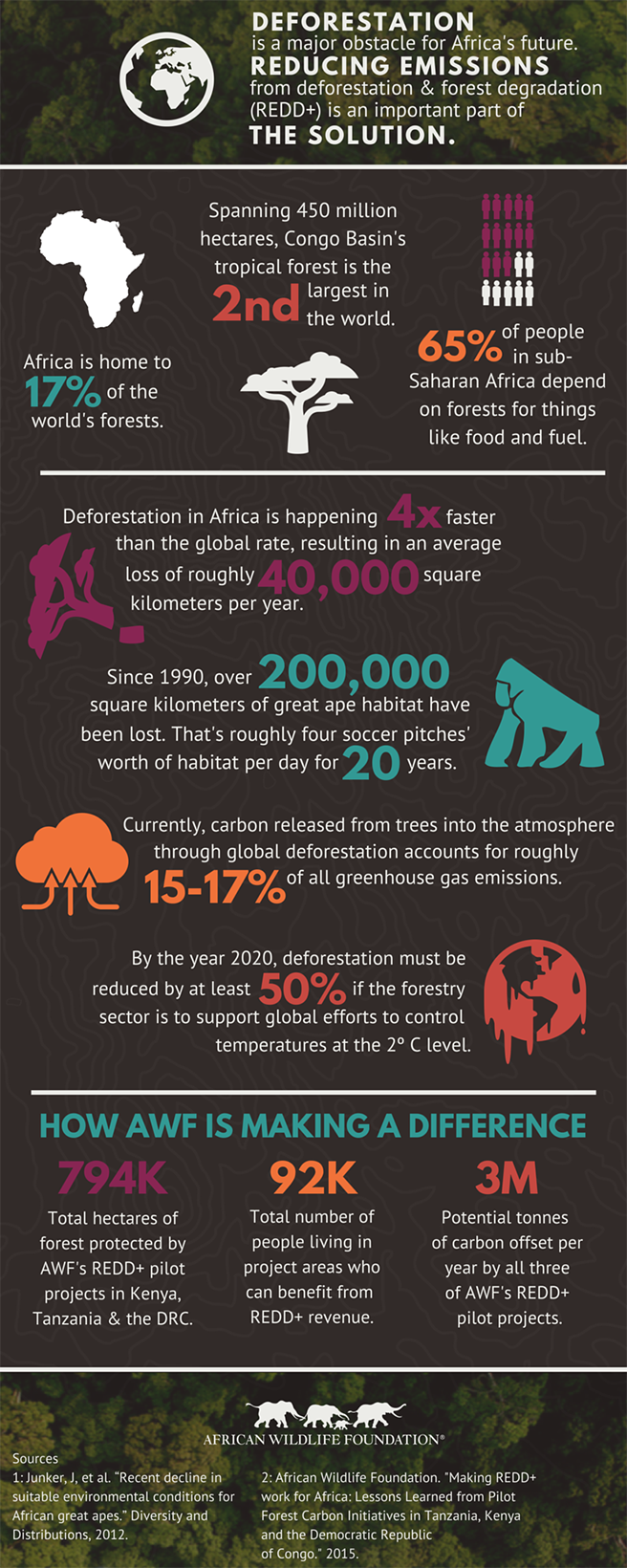Get the Scoop on Deforestation in Africa

Happy Earth Day! On this 45th anniversary of the international day to celebrate our wonderful planet, many people across the globe find themselves oscillating between feelings of grave concern and marked optimism.
They’re concerned about the ever-mounting evidence that, as a global citizenry, we have failed to progress in ways that work with, not against, our collective home. Yet they’re optimistic because the environmental movement has never felt stronger or more mainstream, with more and more determined voices joining in the call for worldwide change.
Africa’s current situation fits snugly into this dichotomous narrative. The continent as a whole contributes the least amount to greenhouse gas emissions, yet it is the most vulnerable to the consequences of climate change.
Deforestation is a prime example—17 percent of the world’s forests are found in Africa, including the second largest tropical forest, the rainforest of the Congo Basin, which itself accounts for a whopping 60 percent of Africa’s biodiversity. With deforestation on the continent occurring at four times the rate of the global average, there is certainly cause for concern.
But there are also plenty of efforts that give cause for optimism, and AWF’s REDD+ pilot projects are case in point. REDD+, which stands for reducing emissions from deforestation and forest degradation, works to protect the environment by increasing the quality of life for local communities, creating a cycle of mutual gain. Projects aim to reduce community dependence on consumptive forestry activities by providing new and/or improved sources of livelihood.
What does that mean in laymen’s terms? Basically, REDD+ projects ensure that sections of forest will remain intact, reducing the carbon emissions released into the atmosphere from cutting down trees. These carbon reductions are measured and sold as credits to organizations looking to offset their own carbon emissions.
Revenue from the sale of carbon credits directly benefits the participating communities through a pre-determined benefit-sharing mechanism, such as providing funding for the construction and operation of a new community school, or helping to supplement the salaries of forest and game scouts. The benefit-sharing mechanisms are specifically designed to provide new sources of income and opportunity that allow communities to move away from practices that are detrimental to their surrounding environment.
Want more specifics on deforestation in Africa, and how AWF’s REDD+ projects are making a difference? Check out the infographic below for key stats, and then share it with your friends to help raise awareness on this day of celebration in honor of Planet Earth.
